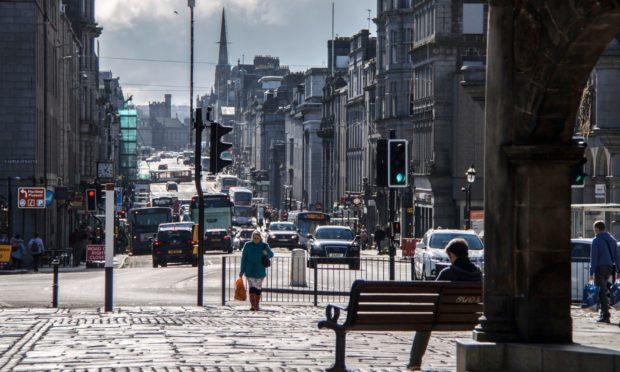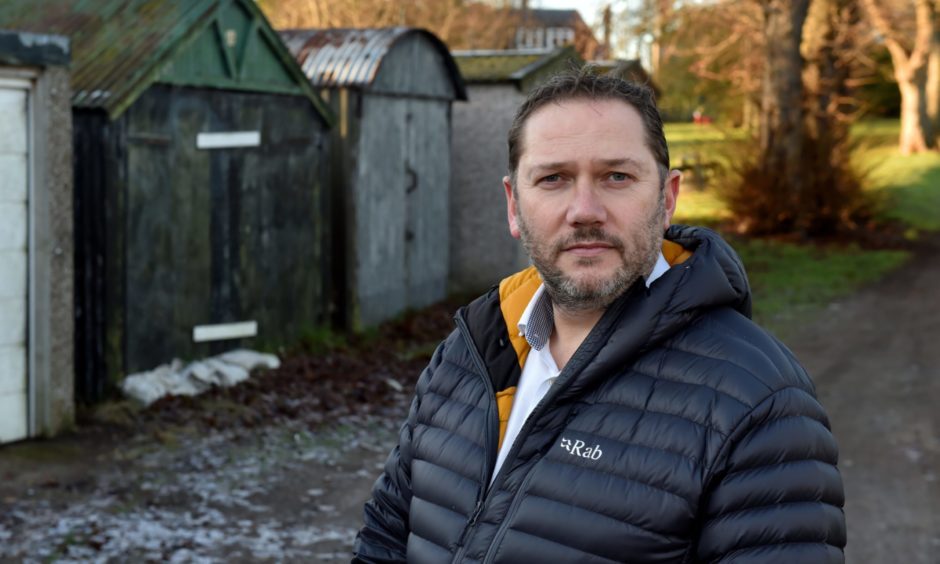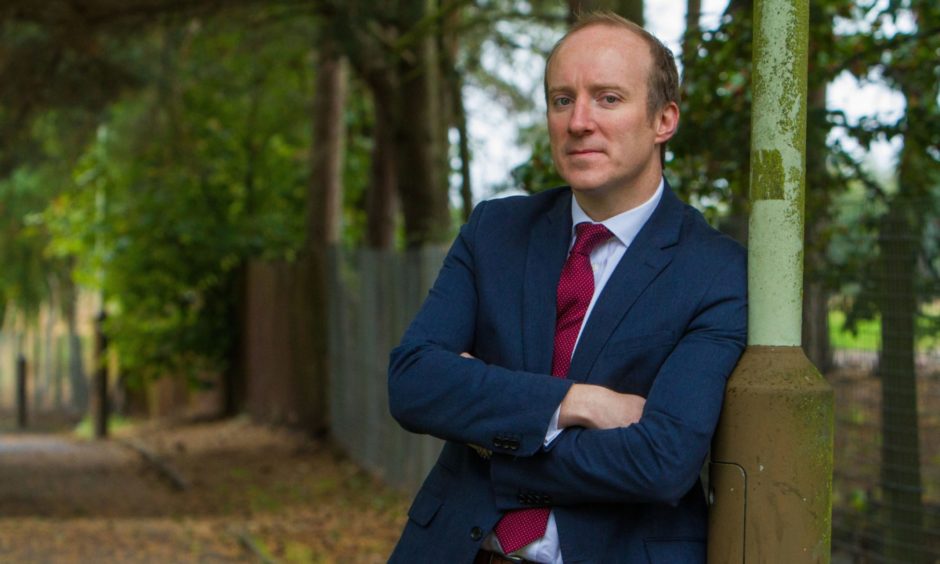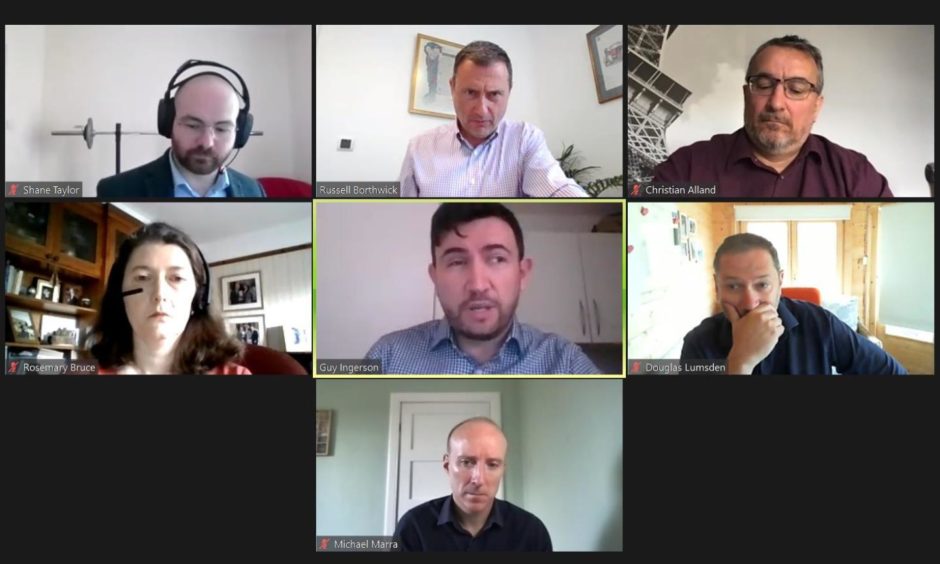The energy transition, transport and broadband connectivity and a review of the business rates system have emerged as the key issues facing the north-east, an election hustings has heard.
With just a week to go before the Holyrood election, candidates from the main political parties were given the opportunity to share their priorities and plans for the future of the Aberdeen city region and the country as a whole at a hustings organised by Aberdeen & Grampian Chamber of Commerce on Thursday.
Shane Taylor, the chamber’s policy manager, told virtual attendees the north-east has faced “perhaps the most disproportionate impact on employment of any region in Scotland due to the pandemic” and accounts for around one third of redundancies on the Scottish Government’s Pace programme.
It comes after the business organisation and its Edinburgh and Glasgow equivalents released a report on the future of Scottish cities that warned decisions taken in the next Holyrood term risk leaving the centre of Aberdeen and other cities “urban deserts”.
Scottish Green candidate Guy Ingerson said his party is looking to create 100,000 jobs through a green recovery and will make sure a “just transition” away from fossil fuels and towards more renewable forms of energy is built into “everything we are doing”.
His party’s co-leader, Patrick Harvie, revealed this month he thinks oil and gas production should wind down within the next 10 years and claimed his party is the only one serious about creating jobs by “investing in the industries of the future”.
Speaking in the hustings, Scottish Conservative candidate Douglas Lumsden accused Mr Harvie of “basically saying if you work in oil and gas in Aberdeen, you need to find a new job”.
But Mr Ingerson said: “The idea I want to make my friends, my family and my community unemployed is just absolutely for the birds.
“We do not want to have a situation where Aberdeen is like an old coal town where market forces dictate that the industry shuts down and we see loads and loads of people made unemployed and the devastating consequences that has.”
Mr Lumsden said his party believes North Sea oil and gas “still has a future”, adding politicians “can’t just flip the switch” on fossil fuels and must instead encourage the sector to play an active role in the transition.
Meanwhile, Scottish Labour candidate Michael Marra said Aberdeen has been “one of the hardest-hit regions in the whole of the UK” over the last 18 months and pointed to the “huge impact” of the oil and gas downturn.
He added: “I don’t believe there is a bigger challenge in our economic performance than the challenge that faces Aberdeen and Aberdeenshire over the coming decade.
“Aberdeen for so long has been the backbone of the Scottish economy.
“The scale of that challenge for the whole country has to be met by the next Scottish Government.
“The scale of this challenge cannot be underestimated.”
Vision for the city centre
Candidates also shared their visions for the city region, with candidates putting forward one proposal each on how they would improve Aberdeen city centre, including more green public spaces, investment and changes to the retail experience.
Mr Marra said retail should move into “something more experience based” rather than “pile them high, sell them cheap”.
This will involve “shifting the tax system” to put more of the tax burden on online retailers and allow local businesses to innovate.
SNP candidate Christian Allard, who is also a city councillor, said there needs to be more people living in the city centre and pointed at Dundee as a good example of city centre living and regeneration.
Rosemary Bruce, candidate for the Scottish Liberal Democrats, pointed to the need to work together to meet the challenges of a changing retail sector, including those who live in the region, to businesses, local and national government.
Mr Lumsden, who is also co-leader of Aberdeen City Council, pointed at his administration’s record, including £150 million of investment in capital projects.
But he said there needs to be “a big investment” from the Scottish Government in order for the city to move forward on more projects.
Top of Mr Ingerson’s agenda is creating more green spaces in the city centre rather than “just concrete blocks”, pointing to Barcelona as an example of a city with “enjoyable public space” for the public to enjoy.
The Scottish Green candidate, who said the city centre is “not an enjoyable place to live”, said: “We’ve over developed in some parts of the city centre. We should be looking at how we can open up some of the spaces.
“I wouldn’t want to live in the city centre because I’d be paying extortionate rents for substandard housing.”
Mr Lumsden and Mr Allard had several tense exchanges over their differing stances on the SNP’s record in government and how best to improve relations between the city region and government.
In terms of his party’s priorities, the Conservative candidate said the business rates “fiasco” must be addressed, and promised his party would carry out a “wholesale review” of the system.
He claimed that “overnight bills doubled back in 2017 with businesses taxed on the good days of 2015” despite the market having changed dramatically as a result of the oil downturn.
The Aberdeen City Council co-leader also pledged to roll out full fibre broadband to every home and business by 2027 and criticised the former SNP government for failing to deliver on this target while in government.
The chamber has said it would like to see a “relationship reset” between government and the private sector after a “strained period between governments across the UK and the private sector” during the pandemic.
Mr Allard pointed to the importance of government ministers from the north-east, including Housing Minister Kevin Stewart, who is standing for re-election for the SNP in Aberdeen Central.
He also said the administration in Aberdeen City Council has in the past not been “forthcoming” on working together, pointing at the local authority’s previous decision to leave Cosla, the association that represents all of Scotland’s 32 local authorities.
But Mr Lumsden hit back at Mr Allard by claiming Mr Stewart’s presence in government had not prevented Aberdeen being the second-lowest funded council in Scotland.




